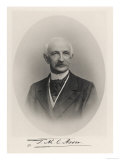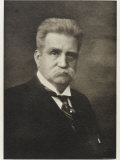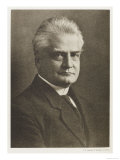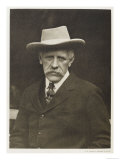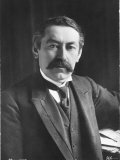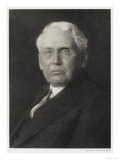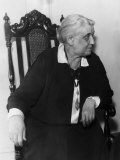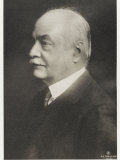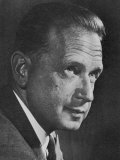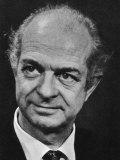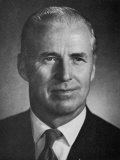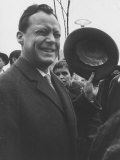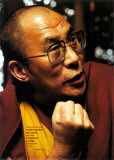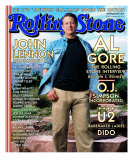|
|
|
|
|
|
|
PEACE & JUSTICE CALENDARS
|
|
|
|
|
|
|
|
|
|
|
|
|
|
|
|
|
|
|
|
 |
|
|
|
Nobel Peace Prize Winners Educational Posters, pg 2/2
for Classrooms & Homeschoolers
|
peace & justice > Nobel Peace Prize Winners Posters 1 | 2 < social studies
|
|
Posters of Nobel Peace Prize winners: Theodore Roosevelt, Elihu Root, Fridtjof Nansen, Charles G. Dawes, Aristide Briand, Frank B. Kellogg, Cordell Hull, Ralph Bunche, George C. Marshall, Lester Pearson, Dag Hammarskjöld, Linus Pauling, Norman Borlaug, Willy Brandt, Eisaku Sato, Andrei Sakharov, Lech Walesa, the Dalai Lama, Frederik Willem de Klerk, Nelson Mandela, Jimmy Carter, Al Gore; for the classroom, home schoolers, theme decor.
|
|
|
|
The First Nobel Peace Prize, 1901
Jean Henri Dunant
b. 5-8-1828; Geneva, Switzerland
d. 10-30-1910
Businessman and social activist Jean Henri Dunant witnessd the aftermath of the Battle of Solferino in modern day Italy. His memories and experiences recorded in A Memory of Solferino inspired the creation of the International Committee of the Red Cross (ICRC) in 1863. The 1864 Geneva Convention was based on Dunant's ideas. In 1901 he received the first Nobel Peace Prize together with Frédéric Passy.
|
|
|
|
Nobel Peace Prize, 1906
Theodore Roosevelt
b. 10-27-1858; NYC
d. 1-6-1919
Theodore Roosevelt, 26th President of the U.S. was awarded the 1906 Nobel Peace Prize for “brokering the Treaty of Portsmouth ending the Russo-Japanese War”.
• presidents posters
|
|
|
|
Nobel Peace Prize, 1911
Tobias Michael Carel Asser
b. 4-28-1838; Amsterdam
d. 7-29-1913
Tobias Michael Carel Asser, a Dutch jurist and worker for world peace, was the initiator of the International Conferences of Private Law in The Hague.
|
|
|
|
Nobel Peace Prize, 1912
Elihu Root
b. 2-15-1845; Clinton, NY
d. 2-7-1937
Elihu Root was awarded the 1912 Nobel Peace Prize for “for initiating various arbitration agreements”.
|
|
|
|
Noble Peace Prize, 1921
Hjalmar Branting
b. 11-23-1860; Stockholm, Sweden
d. 2-24-1925
Swedish Prime Minister Hjalmar Branting and Christian Louis Lange, shared the 1921 Nobel Peace Prize.
Christian Louis Lange
b. 9-17-1869; Stavanger, Norway
d. 12-11-1938 |
|
|
|
Noble Peace Prize, 1922
Fridtjof Nansen
b. 10-10-1861; Christiania, Norway
d. 5-13-1930
Fridtjof Nansen was a Norwegian polar explorer, zoologist and diplomat who was awarded the Nobel Peace Prize in 1922 for his work as a League of Nations High Commissioner. The ‘Nansen bottle’ is still used today to collect deep water samples and the UNHRC presents the “Nansen Refuge Award” yearly.
• Farthest North: The Exploration of the Fram 1893-1896
|
|
|
|
|
|
|
|
|
|
|
|
|
Nobel Peace Prize, 1931 - Sociologist Jane Addams and educator Nicholas Murray Butler
|
|
|
Nobel Peace Prize, 1945
Cordell Hull
b. 10-2-1871; Olympus, TN
d. 7-23-1955; Washington, DC
US Secretary of State (1933-1944) Cordell Hull received the Nobel Peace Prize in 1945 for his role in establishing the United Nations, and was referred to by President Roosevelt as the “Father of the United Nations.”
Cordel Hull quote ~
• “Never insult an alligator until after you have crossed the river.”
|
|
|
|
|
|
|
Nobel Peace Prize, 1953
George Marshall
b. 12-31-1880; Uniontown, PA
d. 10-16-1959
George Marshall was the chief military adviser to FDR and considered the “organizer of victory” by Winston Churchill for his work for the Allies in World War II. Marshall was awarded the 1953 Nobel Peace Prize for his ‘Marshall Plan’, a plan for rebuilding Europe supported as Secretary of State under Eisenhower. He was also was named TIME's Man of the Year in 1944 and 1948.
• George Marshall at Amazon.com
|
|
|
|
Nobel Peace Prize, 1957
Lester B. Pearson
b. 4-23-1897; Ontario, Canada
d. 12-27-1972; Ottawa
|
|
|
|
Nobel Peace Prize, 1961
Dag Hammarskjöld
b. 7-29-1905; Sweden
d. 9-18-1961; Northern Rhodesia (now Zambia)
|
|
|
|
Nobel Peace Prize, 1962
Linus Pauling
b. 2-28-1901; Portland, Oregon
d. 8-19-1994; Big Sur, CA
Linus Pauling, American Chemist and Peace Campaigner advocating nuclear disarmament was also awarded the 1954 Nobel Prize in Chemistry and is the only person to win two Nobel Prizes that were not shared.
|
|
|
|
Nobel Peace Prize, 1970
Norman Ernest Borlaug
b. 3-25-1914; Cresco, Iowa
Norman Ernest Borlaugan, agricultural scientist and humanitarian, has been called the “father of the Green Revolution”.
• food posters
|
|
|
|
|
|
|
Nobel Peace Prize, 1974
Eisaku Sato
b. 3-27-1901; Japan
d. 6-3-1975
The first Asian to accept the Nobel Peace Prize was Japanese Prime Minister Eisaku Sato “for his renunciation of the nuclear option for Japan and his efforts to further regional reconciliation”. He shared the prize with Sean MacBride.
|
|
|
|
|
|
|
|
|
|
Nobel Peace Prize 1989
Dalai Lama
b. 7-6-1935; Tibet
“The more you are motivated by love, the more mearless and free your action will be.”
• Dalai Lama posters
|
|
|
|
1993 &1994
The Peace Makers: Rabin, Arafat, Frederik Willem de Klerk, Nelson Mandela
Nobel Peace Prize 1993- Mandela & DeKlerk
Nobel Peace Prize 1994-
Arafat, Peres & Rabin
• Middle East posters
• Africa posters
|
|
|
|
Nobel Peace Prize 2000-
Kim Dae-jung
b. 1-6-1925; South Korea
d. 8-18-2009
15th President of the Republic of Korea from 1998 to 2003, and the 2000 Nobel Peace Prize recipient, Kim Dae-jung came to be called the “Nelson Mandela of Asia” for his long-standing opposition to authoritarian rule.
|
|
|
|
Nobel Peace Prize 2002, Jimmy Carter
b. 10-1-1924; Plains, GA
Former U.S. President Jimmy Carter was awarded the 2002 Nobel Peace Prize “for his decades of untiring effort to find peaceful solutions to international conflicts, to advance democracy and human rights, and to promote economic and social development.”
• President posters
|
|
|
|
Wangari Maathai
b. 4-1-1940; Ihithe village, Colony of Kenya
d. 9-25-2011; Nairobi, Kenya (ovarian cancer)
Environmental and political activist Wangari Maathai founded the Green Belt Movement and was awarded the 2004 Nobel Prize for Peace for “her contribution to sustainable development, democracy and peace.” She was awarded the Right Livelihood Award in 1984.
Maathai earned a degree in biology at Mount St. Scholastica (now Benedictine College) in Atchison, Kansas, and a Master of Science in Biological Sciences from the University of Pittsburgh. After the job as a research assistant in Nairobi was given to someone else based on her gender and tribal affiliation, Maathai was offered another research position which lead to a doctorate in at the University of Munich and eventually to a professorship at the University of Nairobi.
Wangari Maathai quotes ~
• “In a few decades, the relationship between the environment, resources and conflict may seem almost as obvious as the connection we see today between human rights, democracy and peace.”
• “It's the little things citizens do. That's what will make the difference. My little thing is planting trees.”
• “We are very fond of blaming the poor for destroying the environment. But often it is the powerful, including governments, that are responsible.”
• “I have warned people against false beliefs and misinformation such as attributing this disease to a curse from God or believing that sleeping with a virgin cures the infection. These prevalent beliefs in my region have led to an upsurge in rape and violence against children. It is within this context, also complicated by the cultural and religious perspective, that I often speak. I have therefore been shocked by the ongoing debate generated by what I am purported to have said. It is therefore critical for me to state that I neither say nor believe that the virus was developed by white people or white powers in order to destroy the African people. Such views are wicked and destructive.”
• “Anybody can dig a hole and plant a tree. But make sure it survives. You have to nurture it, you have to water it, you have to keep at it until it becomes rooted so it can take care or itself. There are so many enemies of trees.”
• “In the course of history, there comes a time when humanity is called to shift to a new level of consciousness, to reach a higher moral ground. A time when we have to shed our fear and give hope to each other.”
• “To the young people I say, you are a gift to your communities and indeed the world. You are our hope and our future.”
• “Throughout Africa, women are the primary caretakers, holding significant responsibility for tilling the land and feeding their families. As a result, they are often the first to become aware of environmental damage as resources become scarce and incapable of sustaining their families.”
• “The traditional ways were wrongly disowned by Christianity - in hindsight, medicine men were not demons but very important counsellors in the community.”
• “Using trees as a symbol of peace is in keeping with a widespread African tradition. For example, the elders of the Kikuyu carried a staff from the thigi tree that, when placed between two disputing sides, caused them to stop fighting and seek reconciliation. Many communities in Africa have these traditions.”
editor note ~ don't you think that it is interesting that the symbol of Christianity, the cross, is sometimes referred to as a “Tree”, and should be used as the Kikuyu elders did with the staff?
|
|
|
|
Nobel Peace Prize 2007-
Intergovernmental Panel on Climate Change & Al Gore “for their efforts to build up and disseminate greater knowledge about man-made climate change, and to lay the foundations for the measures that are needed to counteract such change.”
Al Gore, Senator from Tennessee
b. 3-31-1948; Washington, DC
• climate posters
|
|
|
|
Barack Obama
b. 8-4-1961; Hawaii
Barack Obama, the 44th President of the United States, was awarded the 2009 Nobel Prize for Peace “for his extraordinary efforts to strengthen international diplomacy and cooperation between peoples.”
|
|
|
2010- Liu Xiaobo of China - “for his long and non-violent struggle for fundamental human rights in China.”
2011 - Ellen Johnson Sirleaf and Leymah Gbowee of Liberia, and Tawakel Karman of Yemen - “for their non-violent struggle for the safety of women and for women's rights to full participation in peace building-work.”
2012 - European Union - “for [having] over six decades contributed to the advancement of peace and reconciliation, democracy and human rights in Europe.” |
|
Peace poster index | 1 Picasso Peace Posters | 2 | 3 | Nobel Peace Prize Winners 1 | 2
previous page | top
|
|
I have searched the web for visual, text, and manipulative curriculum support materials - teaching posters, art prints, maps, charts, calendars, books and educational toys featuring famous people, places and events - to help teachers optimize their valuable time and budget.
Browsing the subject areas at NetPosterWorks.com is a learning experience where educators can plan context rich environments while comparing prices, special discounts, framing options and shipping from educational resources.
Thank you for starting your search for inspirational, motivational, and educational posters and learning materials at NetPosterWorks.com. If you need help please contact us.
|
|
|










